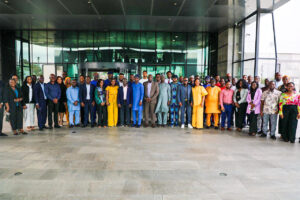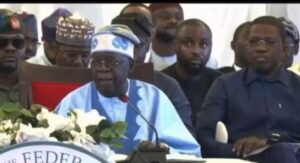Tax clarity, investor confidence depend on judiciary’s insight — FIRS Chairman

The Executive Chairman FIRS Zacch Adedeji ( 2nd seated left to right), flanked by Justices of the Supreme Court, Court of Appeal, and Judges of the Federal High Court at a capacity-building workshop on new tax laws organized by the Federal Inland Revenue Service (FIRS) in Abuja on Monday
The Executive Chairman of the Federal Inland Revenue Service (FIRS) has commended the Nigerian judiciary for its consistent and sound tax rulings, describing them as pivotal to strengthening investor confidence and shaping the country’s fiscal stability.
Speaking at a capacity-building workshop for Justices of the Supreme Court, Court of Appeal, and Judges of the Federal High Court on emerging tax laws, the FIRS Chairman praised the National Judicial Institute (NJI) for organizing what he called a “timely and essential forum.”
He noted that the introduction of new tax laws—including amendments to the Finance Acts, the Petroleum Industry Act, and other fiscal legislations—has significantly reshaped Nigeria’s tax ecosystem, underscoring the need for deeper collaboration between the judiciary and tax authorities.
> “The judiciary, through its interpretative powers, remains the ultimate arbiter in maintaining the balance between the legitimate powers of tax authorities and the rights of taxpayers,” he said.
He added that consistent judicial pronouncements have provided stability, predictability, and fairness in tax administration—key ingredients for enhancing voluntary tax compliance and national revenue mobilization.
> “Tax disputes that are resolved promptly and based on clear judicial principles foster compliance and contribute to economic stability,” the FIRS boss emphasized.
The Chairman reaffirmed FIRS’s commitment to continuous partnership with the judiciary, highlighting initiatives such as knowledge sharing, technical support, and regular stakeholder engagement.
He further stressed that the rise of the global digital economy and cross-border transactions presents complex tax challenges, making judicial education more crucial than ever.
Concluding, he expressed confidence that insights from the workshop would “enhance the quality of judicial pronouncements and contribute to a more efficient and equitable tax system in Nigeria.”




